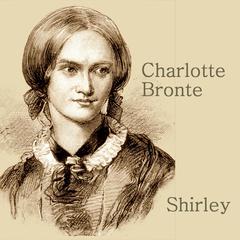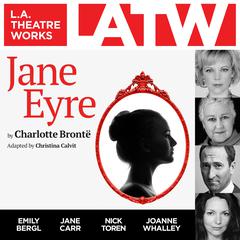 Play Audiobook Sample
Play Audiobook Sample
Jane Eyre Audiobook
 Play Audiobook Sample
Play Audiobook Sample
Quick Stats About this Audiobook
Total Audiobook Chapters:
Longest Chapter Length:
Shortest Chapter Length:
Average Chapter Length:
Audiobooks by this Author:
Publisher Description
Determined to make her heroine “as poor and plain as myself,” Charlotte Brontë made a daring choice for her 1847 novel. Jane Eyre possesses neither the great beauty nor entrancing charm that her fictional predecessors used to make their way in the world. Instead, Jane relies upon her powers of diligence and perception, conducting herself with dignity animated by passion.
The instant and lasting success of Jane Eyre proved Brontë‘s instincts correct. Readers of her era and ever after have taken the impoverished orphan girl into their hearts, following her from the custody of cruel relatives to a dangerously oppressive boarding school and onward through a troubled career as a governess. Jane’s first assignment at Thorn field, where the proud and cynical master of the house harbors a scandalous secret, draws readers ever deeper into a compelling exploration of the mysteries of the human heart.
A banquet of food for thought, this many-faceted tale invites a splendid variety of interpretations. The heroine’s insistence upon emotional equality with her lover suggests a feminist viewpoint, while her solitary status invokes a consideration of the problems of growing up as a social outsider. Some regard Jane’s attempts to reconcile her need for love with her search for moral rectitude as the story’s primary message, and lovers of Gothic romance find the tale’s social and religious aspects secondary to its gripping elements of mystery and horror. This classic of English literature truly features something for every reader.
Download and start listening now!
Jane Eyre Listener Reviews
Be the first to write a review about this audiobook!
About Charlotte Brontë
Charlotte Brontë (1816–1855) grew up in the isolated parsonage at Haworth, Yorkshire, where her father was curate. She and her sisters Emily and Anne thrived in fantasy worlds that drew on their voracious reading of Shakespeare, romantic, and gothic fiction. Charlotte was employed as a teacher and a governess before she began writing with her sisters. The Professor, her first novel, was rejected for publication until 1857, although Jane Eyre, published in 1847 under a pseudonym, achieved great success.











































